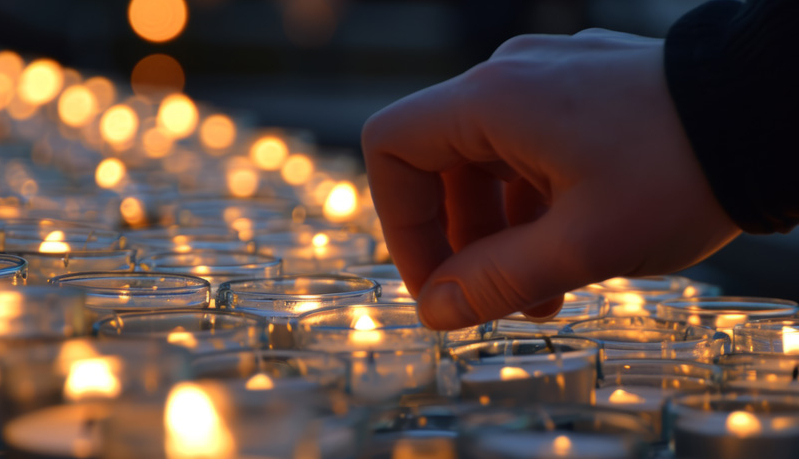
In the second letter to the Corinthians, the apostle Paul declares that he has faced exceedingly difficult situations, beyond his strength "to the point that death seemed certain" (2 Corinthians 1:8). In chapter four of 2 Corinthians he expressed what he felt as he faced these situations.
Yet, at the same time, he notes that there were limits to how far they could go. “We are under pressure from all sides, however, we are not devastated; we are perplexed by the events, but we do not despair; we are persecuted, but never forsaken; cast down, but not destroyed.” (2 Corinthians 4:8-9). In chapter 12 of 2 Corinthians he says that when he recognized his limitations and weaknesses, he had the opportunity to receive and enjoy Christ's provision and to be strengthened.
Pain, suffering, loss, isolation, death, and grief have touched us all in an unprecedented way.
The COVID-19 pandemic and subsequent post-pandemic political turmoil has created unusual situations for most people. Pain, suffering, loss, isolation, death, and grief have touched us all in an unprecedented way. People react in different ways and not all of them are healthy.
For example, on the one hand, we see people who have lost hope, are totally aimless and without a prospect for the future. The pain has brought them to a state of complete hopelessness. They are defeated by the weight of the tribulations.
On the other hand, we find the deniers, who do not recognize the pain that they, or others, are experiencing. Deniers tend to respond with triumphalistic words, as if the suffering they have experienced had no effect on their hearts. Perhaps, for fear of being defeated by anguish, they prefer to deny any dejection of the soul. They refuse to mourn losses.
One of our greatest desires and our greatest illusion, is to be in control of our lives, to be the so called captain of our souls. Catastrophes that we experience confront such illusions and provoke all sorts of unhealthy reactions.
People who discover that they cannot control their destiny, their health, or that of their loved ones, go into despair, as they can find no solution to the problem. “Everything is out of control. There is no hope”, they might say.
Others deny the intensity of the problem in an attempt to stay in control. “I take care of my problems. I can manage this situation. I'm strong. I'm in control”, they believe.
Neither of these types seek God's help. The first may not really believe in Him, and the second simply does not need Him, since they arrogantly think are able to handle the situation on their own.
He used the situation to affirm his dependence on God.
The apostle Paul's response was different. He recognized his limits, his weaknesses, the intensity of the pain, but he used the situation to affirm his dependence on God, and to receive the necessary strength to deal with the tribulations. There is weeping and lament, but there is also miracle and restoration. There is a manifestation of the God’s power.
When Jesus encountered his friends Mary and Martha grieving the loss of their brother Lazarus, even though he knew he would resurrect him, the Bible reports that He “groaned in his spirit, was very troubled and wept” (John 11:33-35).
Jesus validated the loss, the pain, the suffering, and was empathetic with them, but he addressed His pain in prayer to the Father and asked him to manifest his power in the situation. This resulted in people being supported, comforted, and coming to believe through the instrumentality of suffering and the manifestation of the power of God resulting from Jesus' deeply heartfelt prayer.
So, let us follow Jesus' example as Paul did—admit our suffering, but affirm our dependence on the love of God. When we are under pressure from all sides, we are not suffocated; when we don't understand what's going on, we should trust God.
Even in the face of the harshest of difficulties, we know that he will never leave nor forsake those whose hearts are steadfast upon him. And if we get knocked down, we need to trust that he will always raise us up... in his time.
José Rosifran C Macedo. Presbyterian pastor, M.A in New Testament from Biblical Theological Seminary, USA; missionary of the AMEM / WEC Brazil since 1983. He and his wife, Alicia, were the directors of Missionary Training College, WEC Brazil's training seminary for cross-cultural workers, for 12 years, and WEC Brazil directors for 9 years. They organized the member care department and the Missionary Kids (MK) care for WEC Brazil. Since 2009, they have been coordinators of Philhos, the MK care department for the Brazilian Association of Crosscultural Missions, AMTB. Rosifran is the author of "Protecting What is Precious", a manual for the safety and protection of cross-cultural workers. He is the coordinator of AMTB Security, a member of the AMTB board, and the representative of Brazil on the Global Member Care Network board.





